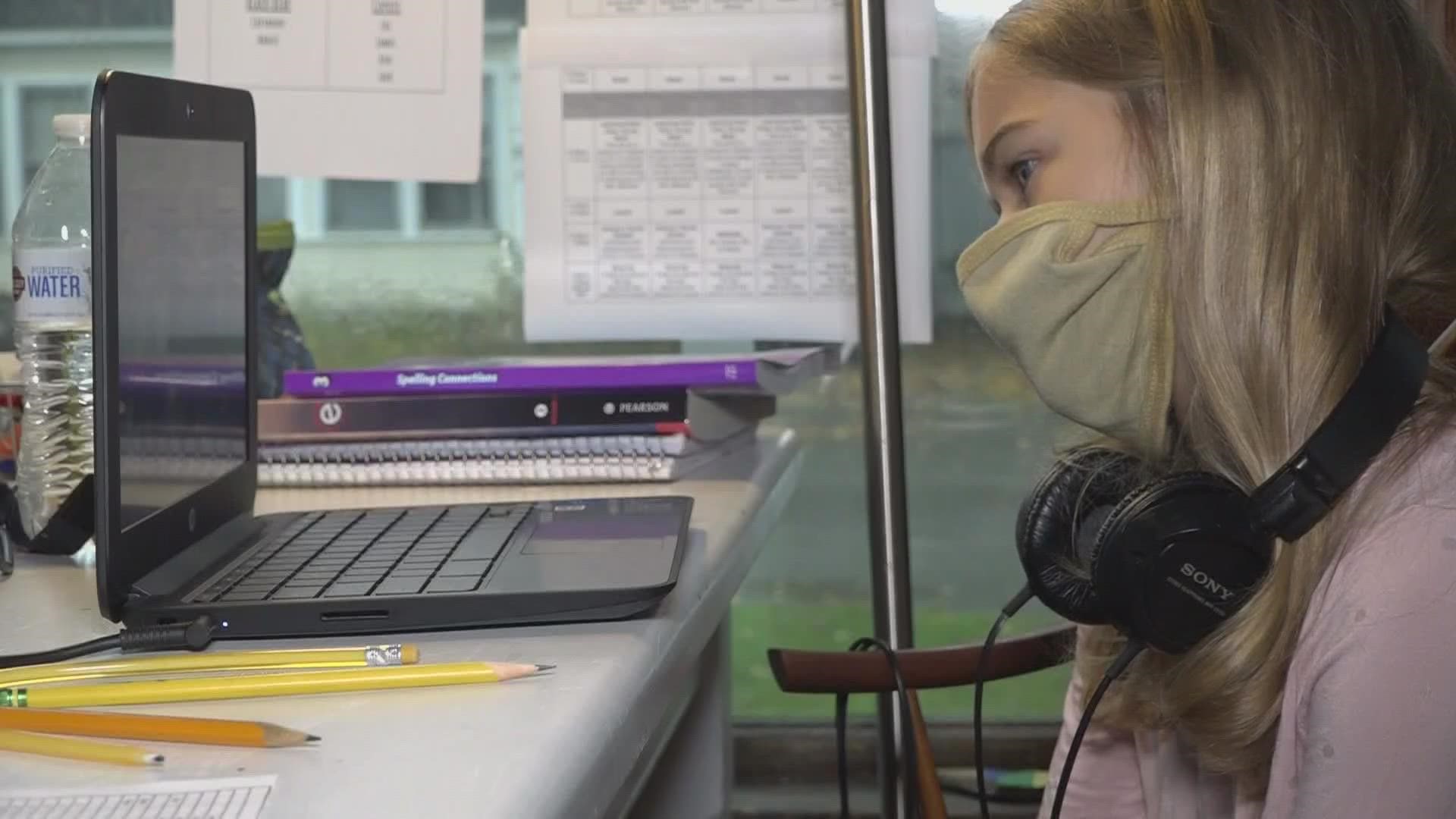BANGOR, Maine — Many in the United States have been following Russia's invasion of Ukraine in real-time from news coverage and social media posts. The information and images can be difficult to process. This not only goes for adults but children too.
Don Noble understands this reality firsthand.
Noble and his wife live in Scarborough with four kids ages 2 to 13. The kids' grandparents are in Ukraine and trying to survive in the country's capital of Kyiv. Noble's children are all handling the situation differently.
"It's been difficult," Noble said. "My son, he's really confused at the idea of what war means. For him, it means, 'When is Captain America going to show up and save grandma and grandpa?'"
For Noble's 11-year-old and 13-year-old, minimizing time online has been a priority.
"Within a quick Google search, they're able to see the devastation," Noble said.
At times, Noble's children have had questions about the War in Ukraine. Noble said he and his wife do their best to answer them.
"Sometimes you kind of have to boil it down," Noble explained. "For example, 'Here's this lady, here's this guy, and here's kind of what their problems are and what do you think about them?' It lets them be a part of the process, and I think it's really been helping, especially with the oldest."
RELATED: Russians, Belarusians out of Paralympics in abrupt reversal after other countries threaten boycott
Dr. Denise Vagt is a clinical psychologist at Northern Light Acadia Hospital in Bangor. She said if parents are unsure about how to start a conversation with their child about Ukraine, they can begin by inviting kids to talk about it.
"Finding ways to touch base and answer questions, depending on the kid's age, can really allow them to feel safe," Vagt told NEWS CENTER Maine.
Vagt recommends parents have a conversation with their children at a time and place that's best for them.
"No matter the age of the child, we can increase their feelings of safety by increasing their sense of control," she explained.
When talking to children about war, Vagt said it's important for them to know that although it's significant, the conflict is far away.
"Instead of maybe recognizing, 'Oh wow, I feel really sad because this is happening to someone else,' ... [kids are] focusing it on themselves: 'This is very scary. What if this happens to me?'" she said.
Vagt said parents can help explain this by using visuals like a map. She also said parents planning to talk to their children should try to manage their emotions because children are typically sensitive toward them. Vagt suggests parents not deny that something bad is happening if their kids ask about it but instead acknowledge it by sharing some basic details.

